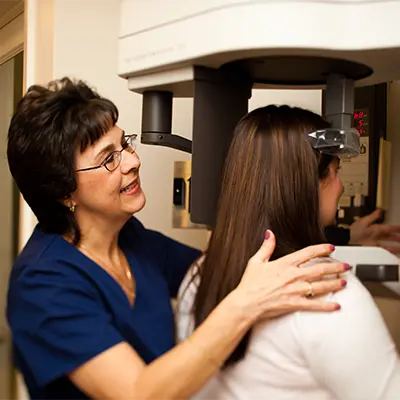
Welcome to East Portland DentistryOur professional team at East Portland Dentistry proudly provides personalized treatment plans and comprehensive dental services including preventive and dental hygiene, restorative dentistry, root canals, cosmetic dentistry and more. For more than four decades, the Portland community has trusted our East Portland dentist, and we strive to continue our long-standing tradition of excellence in oral health care. Call us and schedule your appointment today! Dentist in Portland, Dr. Joy C. Arend, DMD and the staff at East Portland Dentistry provide comprehensive general and cosmetic dental services to help you maintain a healthy smile. We are proud to offer a warm, caring atmosphere in our East Portland neighborhood where we are happily accepting new patients. Our professional, friendly staff at East Portland Dentistry is sincerely committed to providing you with the dental care your family deserves. Treatment is personalized to each individual, and we really take the time to listen. At East Portland Dentistry, we want to be your Portland dentist of choice! |
    |
Always a great experience I am so grateful to have Dr. Joy Arend and her fantastic staff for my dental work. Joy is everything you'd want in a dentist, patient, a good listener and communicator. I trust her completely when it comes to caring for my teeth. The work she has done for me has been excellent. She does not push me to have work I don't need. I had a childhood of traumatic dental experiences and Joy has been the perfect cure. She takes the time necessary to help me care for my teeth. |
Meet Our DoctorDr. Joy came to Oregon after receiving her undergraduate degree in microbiology from Northern Arizona University. She attended dental school at Oregon Health Sciences University, graduating with honors. Dr. Arend continues her education through multiple study clubs and graduate classes in advanced dentistry. She has completed ten years in the masters Synergy training program for Dental Implants. Dr. Arend is a member of the American Dental Association, Multnomah Dental Society, and the Academy of General Dentistry. As one of the premier dentists in East Portland, OR, she believes strongly in giving back to the community. She has been a longtime volunteer with the children's mobile van, Creston School, and has participated in the Mission of Mercy in downtown Portland. Read more about Dr. Arend |
Our Convenient LocationEast Portland Dentistry9 NE 120th Ave. Portland, OR 97220-2348 |
 Phone(971) 484-1652 HoursMonday – 8:00 am - 5:00 pm Tuesday – 7:00 am - 5:00 pm Wednesday – 8:00 am - 1:00 pm Thursday – 8:00 am - 6:00 pm Friday – 8:00 am - 5:00 pm |